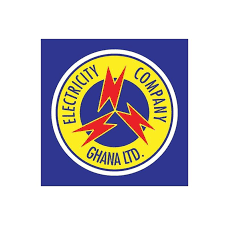IMF Report: ECG Collects Over GH¢1 Billion Monthly in 2025

Ghana’s ongoing efforts to reform its struggling energy sector have yielded moderate improvements, with the Electricity Company of Ghana (ECG) now recording monthly collections exceeding GH¢1 billion in 2025. This development, highlighted in the latest Ghana Country Report by the International Monetary Fund (IMF), reflects modest gains in revenue mobilization and regulatory compliance, though significant structural and operational challenges persist.
According to the IMF, the increased revenue marks a notable improvement in the utility’s performance and indicates stronger adherence to the Cash Waterfall Mechanism (CWM)—a financial framework designed to ensure transparent and prioritized distribution of sector revenues. “Compliance with the Cash Waterfall Mechanism improved somewhat in 2025, with monthly ECG collections exceeding the minimum GH¢1 billion,” the report states, signaling some progress in the financial discipline of the power sector.
However, the report also points out that, despite ECG’s improved collections, some Independent Power Producers (IPPs) received less than anticipated. This discrepancy is attributed to funds being diverted to cover emergency fuel purchases, as well as the recent inclusion of a new IPP in the CWM pool, which further diluted the available disbursements.
Tariff adjustments were another key development in 2025. In April, the Public Utilities Regulatory Commission (PURC) approved a 14.75% increase in electricity tariffs. This followed two quarters—December 2024 and March 2025—during which tariffs were held constant. The IMF sees this latest adjustment as a sign of the government’s intention to gradually align electricity prices with the actual cost of power generation, thereby improving the financial sustainability of the sector.
At the policy level, the government is moving forward with broader reforms. The report notes that Cabinet has endorsed a new strategy to allow private sector participation in power distribution. This initiative is part of Ghana’s structural benchmarks under its ongoing program with the IMF and is expected to be implemented by the end of September 2025.
Despite these efforts, the report underscores that ECG continues to grapple with operational inefficiencies and accountability gaps. One key issue was the delayed publication of ECG’s Revenue and Collection Accounts Validation Reports for the final quarter of 2023 and the full year 2024. Originally scheduled for release by the end of January 2025, the reports were not published on time. The IMF attributes the delay to the wider-than-anticipated coverage of the reporting period, reflecting challenges in timely financial transparency.
Furthermore, the IMF raised concerns over discrepancies between ECG’s reported collections and actual distributions through the CWM. In 2024, ECG claimed to have collected GH¢5.3 billion, yet only GH¢3.9 billion was disbursed in line with the CWM guidelines. The report reveals that a significant portion of the shortfall was used for fuel purchases outside the established financial framework, undermining the transparency and intended function of the CWM.
These findings highlight the complexity of reforming Ghana’s energy sector. While the increase in ECG’s monthly revenue is a positive development, the sector continues to face systemic hurdles—including weak enforcement of financial rules, inconsistent fund allocation, and limited data transparency.
The IMF concludes that although there is evidence of political will to improve the sector, progress remains fragile. Without consistent adherence to financial frameworks like the CWM and timely publication of financial reports, the sector’s long-term sustainability remains uncertain. The call for increased private sector involvement, better regulation, and stronger oversight remains central to ensuring that recent gains are not reversed.
In summary, Ghana’s energy sector reform is inching forward, driven by incremental improvements in revenue collection and regulatory action. However, achieving meaningful and lasting transformation will require a more robust commitment to transparency, accountability, and financial integrity across the entire power value chain.







